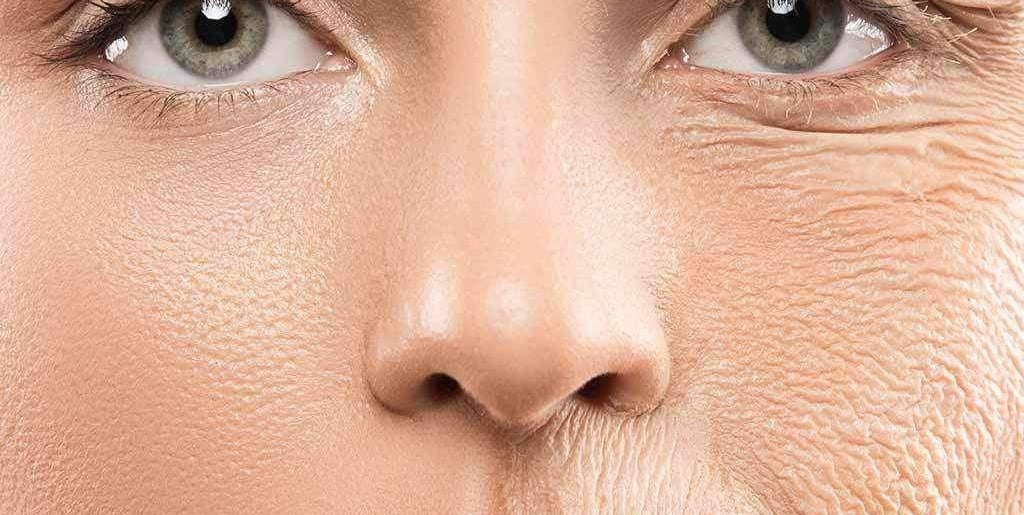Collagen SOS: 6 Signs Your Body Is Begging For More
Is your body lacking collagen? Learn to recognize 6 key signs – dull skin, wrinkles, joint pain, hair loss, brittle nails, and cellulite – and discover how to boost your collagen levels naturally.
HEALTHBLOG-LIST
4/8/20253 min read


Collagen is the most abundant protein in the human body, acting as the structural foundation for our skin, joints, bones, hair, and nails. As we age, our collagen production naturally declines, leading to various signs of aging and discomfort. Recognizing these signs early can help you take proactive steps to boost your collagen levels and support your overall health. In this article, we'll explore 6 key indicators that your body is craving more collagen and how you can address this deficiency through diet and supplementation.
In Brief
This article outlines six common signs indicating a possible collagen deficiency: dull skin and sagging, premature fine lines and wrinkles, stiff or painful joints, hair loss and thinning, brittle nails, and increased cellulite or changes in skin texture. It explains the link between collagen and each symptom.
Table of Contents
The Vital Role of Collagen
Sign #1: Dull Skin and Sagging
Sign #2: Fine Lines and Wrinkles Come Faster
Sign #3: Stiff or Painful Joints
Sign #4: Falling Out and Thin Hair
Sign #5: Brittle Nails
Sign #6: More Cellulite or Skin Texture Changes
Boosting Collagen Levels Naturally
Frequently Asked Questions (FAQs)
Conclusion
1. The Vital Role of Collagen
Collagen is a fibrous protein that provides structure and support to various tissues throughout the body. It acts like a glue, holding everything together and contributing to:
Skin Elasticity: Keeping skin firm, smooth, and youthful-looking.
Joint Health: Maintaining cartilage and reducing joint pain.
Bone Strength: Supporting bone density and reducing the risk of fractures.
Hair and Nail Growth: Promoting strong, healthy hair and nails.
Gut Health: Contributing to the integrity of the gut lining.
2. Sign #1: Dull Skin and Sagging
The Connection: Collagen provides structure and elasticity to the skin. When collagen levels decline, the skin loses its firmness and suppleness, leading to a dull complexion and sagging appearance.
What to Look For: Reduced radiance, loss of firmness, increased visibility of pores.
3. Sign #2: Fine Lines and Wrinkles Come Faster
The Connection: Collagen helps maintain skin's smooth texture. As collagen breaks down, the skin becomes thinner and more prone to wrinkles and fine lines.
What to Look For: Appearance of fine lines around the eyes and mouth, deepening of existing wrinkles.
4. Sign #3: Stiff or Painful Joints
The Connection: Collagen is a key component of cartilage, the cushioning tissue that protects our joints. Reduced collagen levels can lead to cartilage breakdown, resulting in joint pain, stiffness, and decreased mobility.
What to Look For: Aching joints, stiffness, clicking or popping sounds in joints, reduced range of motion.
5. Sign #4: Falling Out and Thin Hair
The Connection: Collagen provides strength and structure to hair follicles. When collagen levels decline, hair can become brittle, weak, and prone to breakage, leading to hair loss and thinning.
What to Look For: Increased hair shedding, thinner hair strands, slower hair growth.
6. Sign #5: Brittle Nails
The Connection: Collagen contributes to the strength and integrity of nails. When collagen levels are low, nails can become weak, brittle, and prone to splitting and breakage.
What to Look For: Nails that break easily, split ends, ridges, and slow growth.
7. Sign #6: More Cellulite or Skin Texture Changes
The Connection: Collagen helps maintain the skin's structural integrity. Reduced collagen levels can weaken the connective tissue that supports the skin, making cellulite more visible and leading to changes in skin texture.
What to Look For: Increased dimpling or unevenness in the skin, particularly on the thighs and buttocks.
8. Boosting Collagen Levels Naturally
Diet: Consume a diet rich in collagen-boosting nutrients such as:
Protein: Essential for collagen synthesis. Include sources like meat, poultry, fish, eggs, beans, and lentils.
Vitamin C: A key cofactor in collagen production. Include citrus fruits, berries, and leafy greens.
Proline: Found in egg whites, dairy, and soy.
Glycine: Found in gelatin, bone broth, and chicken skin.
Copper: Found in seafood, nuts, and seeds.
Collagen Supplements: Collagen peptides supplements can provide a concentrated source of collagen that is easily absorbed by the body.
Lifestyle:
Protect Your Skin from Sun Damage: Sun exposure breaks down collagen. Use sunscreen daily.
Avoid Smoking: Smoking damages collagen and elastin in the skin.
Manage Stress: Chronic stress can interfere with collagen production.
Collagen: Fountain of youth or just hype ?
9. Frequently Asked Questions (FAQs)
Q: How long does it take to see results from taking collagen supplements?
A: It can take several weeks or months to notice significant improvements.
Q: Are there any side effects to taking collagen supplements?
A: Collagen supplements are generally safe, but some people may experience mild digestive upset.
Q: What type of collagen supplement is best?
A: Look for collagen peptides (hydrolyzed collagen), which are easily absorbed by the body.
Q: Can I get enough collagen from my diet alone?
A: It's possible to get some collagen from your diet, but supplementation may be necessary to see significant results.
Q: Should I consult with a doctor before taking collagen supplements?
A: It's always a good idea to consult with your doctor, especially if you have any underlying health conditions or are taking medications.
10. Conclusion
Recognizing these 6 key signs can help you determine if your body is craving more collagen. By incorporating collagen-boosting foods and supplements into your routine, along with a healthy lifestyle, you can help support collagen production, combat the signs of aging, and enjoy improved skin, joint, hair, and nail health. Listen to your body and take proactive steps to nourish it from the inside out!
